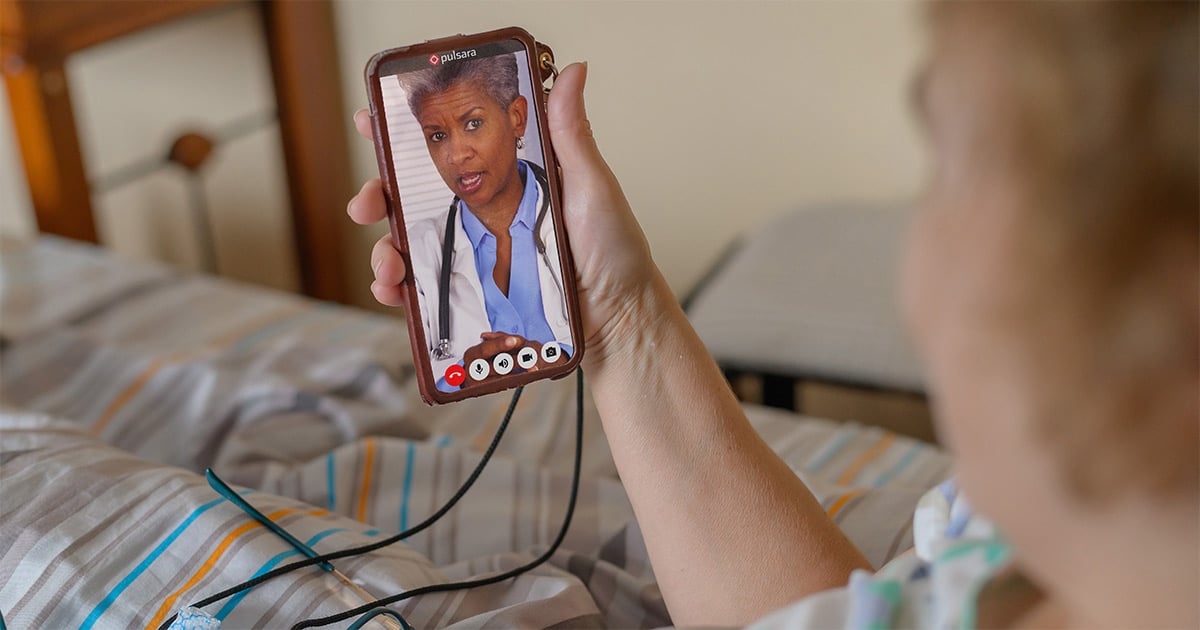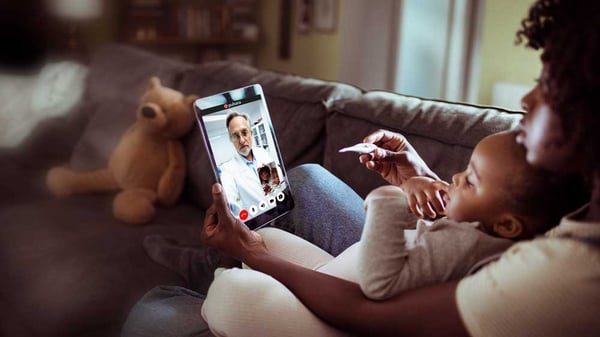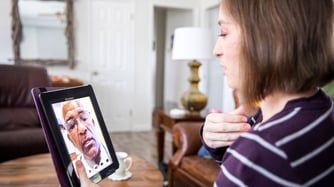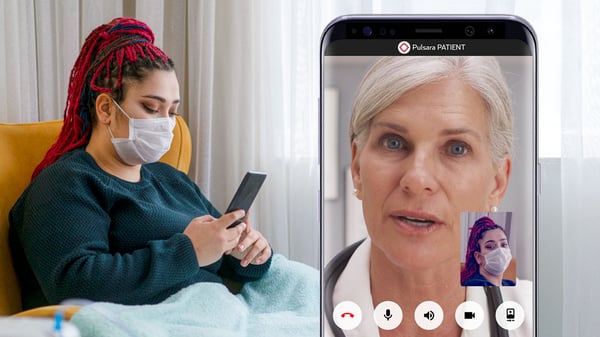Pulsara Around the World - February 2026
January Recap The start of 2026 was on the slow side for our events schedule, with our team heading to the Florida Fire & EMS Conference, the...

EDITOR'S NOTE: Special thanks to Justin Baker for writing today's blog post. You can connect with him on LinkedIn.
While the world has dealt with the far-reaching impacts of COVID-19, the healthcare community has had to deal with many unique challenges. Coming up with and implementing procedures to protect both patients and staff from possible exposure to the virus is a tricky process, especially when in some locations, hospitals have also been dealing with patient surges. Keeping up with routine scheduled visits and elective procedures then becomes even more difficult. As a result, telemedicine has become commonly used for patient care visits and follow up appointments.
COVID-19 has created a situation in which many physicians’ offices are finding themselves doing routine patient visits virtually. While the concept of telehealth appointments has been around for years, telemedicine has only just now become the new norm for many people. During the pandemic, the number of Medicare beneficiaries using telehealth services increased by 11,700%. Healthcare can’t stop, after all—and telehealth is perfectly designed for distance care. Medical offices and clinics are using telehealth to protect both the public and healthcare providers from the spread of COVID-19. By conducting appointments through a laptop or mobile device, physicians are able to check in with patients without the patient ever having to leave home. 
The circumstances of adopting telehealth in the midst of the pandemic brought some additional challenges, however. As the virus began to propagate, providers scrambled to find telehealth solutions that were viable to use for two things: office visits, and monitoring patients that were quarantined at home with the virus. Many grabbed the first option that they found.
And while those options may work in the short term, many solutions out there aren't suitable for long-term use for one important reason: they aren’t HIPAA compliant.
HIPAA guidelines are being temporarily relaxed, which provides some flexibility. That won’t last, though, and there are inherent risks to continuing to use a platform that isn’t secure, as it places both providers and patients at risk.
As we approach autumn and the lasting effects of this pandemic on the world linger, we are beginning to come to terms with the fact that this is our new norm...which means that it’s time to find a telehealth solution that can serve you for the long term. Telehealth isn't going away anytime soon, and you want to make sure that your chosen solution can continue to meet your needs. Here are the top 5 reasons to adopt a HIPAA compliant telehealth solution.
As I stated previously, the regulations aren't gone for good. The Senate Committee on Health, Education, Labor, and Pensions met in June to discuss the future of telehealth: More specifically, which restrictions will be lifted permanently, and which will be reinstated. Most experts agree that privacy guidelines will return. Set yourself up for success now by adopting a solution you won't have to abandon.
When protected health information (PHI) is transmitted through unsecured platforms, it opens up opportunities for your patient's information to fall into the wrong hands. This can be either accidental or malicious. Hackers can take advantage of unencrypted platforms to access information. And when your patients become accustomed to communicating with you through unsecured methods like text messaging, it can put them at greater risk of falling prey to phishing attempts.
 Once you find a secure, HIPAA compliant telehealth solution, you can use it for more than routine patient checkups. Telehealth can be used within your facility to check on patients without having to reenter their room, preserving personal protective equipment. Some follow-up care can be done virtually, allowing patients to continue their recovery at home. Telehealth appointments allow patients to remain at home, preventing them from having to risk exposure by leaving home and visiting an office. It also means that clinicians don't have to risk exposure when caring for patients.
Once you find a secure, HIPAA compliant telehealth solution, you can use it for more than routine patient checkups. Telehealth can be used within your facility to check on patients without having to reenter their room, preserving personal protective equipment. Some follow-up care can be done virtually, allowing patients to continue their recovery at home. Telehealth appointments allow patients to remain at home, preventing them from having to risk exposure by leaving home and visiting an office. It also means that clinicians don't have to risk exposure when caring for patients.
There are many platforms out there that can be used for telehealth. However, not all of them were specifically designed for healthcare. These solutions work for one-off issues, such as using a video conferencing platform for a routine appointment with a patient. However, they also present challenges as you attempt to adapt them into your workflows. Platforms that were designed specifically for healthcare don't have these issues.They fit more naturally into your workflows and often cover more than just one need. Certain secure platforms can also be used to transmit patient information, making communication with your team easier. They're also much more likely to be HIPAA compliant.
A recent survey shows that many physicians are still concerned about the quality of care they're able to provide through telehealth. Security, privacy, and reimbursement were all cited as major reasons clinicians are hesitant to use telehealth.
A robust, HIPAA compliant telehealth solution can help mitigate these concerns, while also expanding the reach of your practice. Solutions like Pulsara reach far beyond simply telehealth, and can also provide documentation that can help with reimbursement.
Here at Pulsara, we provide a HIPAA compliant communication system that includes a secure telehealth solution. This is available for all healthcare providers—from primary care clinics to Emergency Operations Centers to mental healthcare providers. Using Pulsara PATIENT, healthcare providers can video conference with patients in a secure, HIPAA compliant application that’s intuitive and easy to use, while protecting both the patient and the provider. Our secure platform gives providers the opportunity to interact with patients in a way that doesn’t risk exposing PHI, or exposing either patients or providers to COVID-19. Colorado Springs is using Pulsara to care for those that are ill and quarantined at home, giving them the ability to provide quality follow-up care without risking exposure.

We at Pulsara are here to help make sure that your patients and staff are safe—both from the virus, and from privacy violations. As we continue to navigate the uncertain terrain of this pandemic, it appears that telehealth will be a significant fixture in medicine for the foreseeable future. Let Pulsara help protect you and your patients as we navigate through this challenging and stressful time.
Want to know how to choose the right telehealth solution for your hospital? Check out COVID-19 Changed How We View Telemedicine. Here's How to Choose the Right Solution for Your Team.

January Recap The start of 2026 was on the slow side for our events schedule, with our team heading to the Florida Fire & EMS Conference, the...

Recent research shows how Pulsara was successfully leveraged to connect more than 6,000 COVID-19 patients to monoclonal antibody infusion centers via...

At Pulsara, it's our privilege to help serve the people who serve people, and we're always excited to see what they're up to. From large-scale...